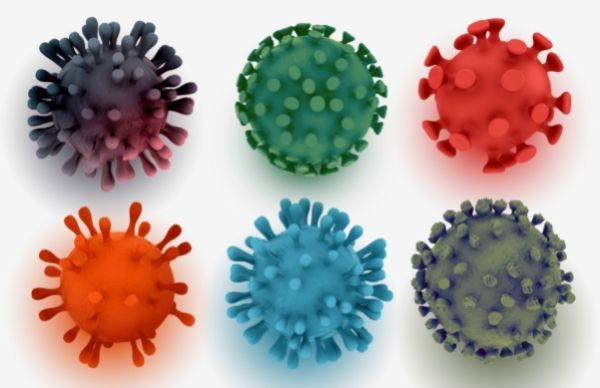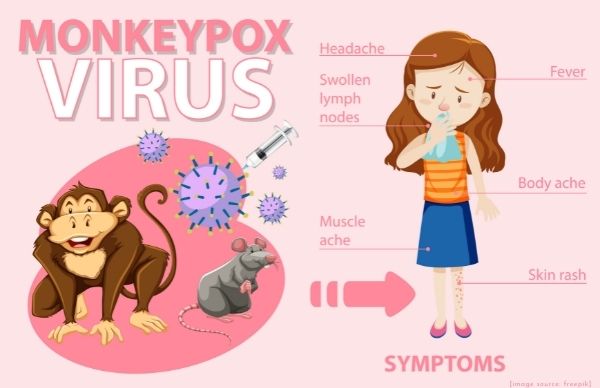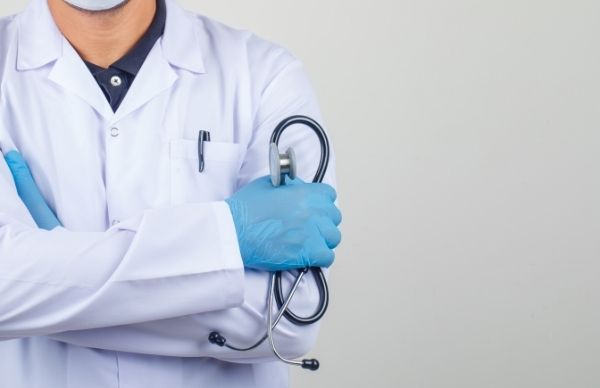Just In
- 1 hr ago

- 2 hrs ago

- 5 hrs ago

- 9 hrs ago

Don't Miss
- Movies
 When Rekha Talked About 'Drinking Binges, Taking Drugs & Being Impure': I've Been Lusting Like Hell
When Rekha Talked About 'Drinking Binges, Taking Drugs & Being Impure': I've Been Lusting Like Hell - Sports
 'It Would be Awesome': Rohit Sharma advocates for India vs Pakistan Bilateral Series with Special Condition
'It Would be Awesome': Rohit Sharma advocates for India vs Pakistan Bilateral Series with Special Condition - Technology
 Vivo V30e Launch Date in India set for May 2: Flipkart Availability Confirmed
Vivo V30e Launch Date in India set for May 2: Flipkart Availability Confirmed - Finance
 Rs 14/Share Dividend: Stockbroking Co To Consider Bonus Share, Shares Up 126% In 180-Days
Rs 14/Share Dividend: Stockbroking Co To Consider Bonus Share, Shares Up 126% In 180-Days - News
 Karnataka Weather Alert: Light Rains Likely In Bengaluru In Next 24 Hours, Check Latest Forecast
Karnataka Weather Alert: Light Rains Likely In Bengaluru In Next 24 Hours, Check Latest Forecast - Travel
 Journey From Delhi To Ooty: Top Transport Options And Attractions
Journey From Delhi To Ooty: Top Transport Options And Attractions - Education
 IIIT-Bangalore Introduces PG Diploma In Digital Product Design And Management
IIIT-Bangalore Introduces PG Diploma In Digital Product Design And Management - Automobiles
 Jawa Yezdi Expands Mega Service Camps To 32 New Cities, Focusing On Tier-II And Tier-III Regions
Jawa Yezdi Expands Mega Service Camps To 32 New Cities, Focusing On Tier-II And Tier-III Regions
Govt Releases Monkeypox Guidelines On Detecting And Treating The Disease
The monkeypox virus is an orthopoxvirus that causes a disease with symptoms similar to smallpox but less severe. Monkeypox is a zoonosis or a disease transmitted from animals to humans. The virus is commonly found in tropical rainforests, where there are animals that carry the virus.
According to the World Health Organization, there are now 131 cases of monkeypox, and a further 106 suspected cases, in 19 countries. Experts describe the outbreak as "random" but "containable" and believe that it was likely triggered by sexual activity at recent raves in Spain and Belgium.

Govt Releases Monkeypox Guidelines: What You Need To Know
Amidst recent reports of monkeypox in non-endemic countries, the Indian government on Tuesday issued guidelines directing district surveillance units to consider even one case to be an outbreak and to initiate a thorough investigation through the Integrated Disease Surveillance Programme [1].
In light of the fact that there are over 300 suspected or confirmed cases of monkeypox in non-endemic countries, the Union health ministry on Tuesday released comprehensive guidelines for surveillance, identification, confirmation, and treatment of monkeypox infections in the country. In India, no cases of monkeypox have been reported [2].
Several countries have reported monkeypox cases, including the United States, United Kingdom, Belgium, France, Germany, Italy, Netherlands, Portugal, Spain, Sweden, Australia, Canada, Austria, Israel, and Switzerland. In addition to these countries, the disease is endemic in other countries such as Cameroon, the Central African Republic, Congo, Gabon, Liberia, Nigeria, and Sierra Leone [3].

Guidelines to prevent monkeypox outbreak
- According to the guidelines released by the health ministry, in order to be considered susceptible, a person should have travelled to the affected countries in the last 21 days, have a rash that is unexplained, and have other symptoms such as swollen lymph nodes, fever, headache, and body aches.
- The case will only be confirmed after the PCR test (like the one conducted for Covid-19) or by sequencing the genetic material from the patient's sample sent to the National Institute of Virology-Pune.
- According to the guidelines, the network must monitor travellers from affected countries for 21 days to determine whether they show symptoms. If so, a sample will be taken.
- Furthermore, the guidelines provide information on treating skin lesions and dehydration and alleviating symptoms such as fever, itching, nausea, vomiting, headache, and malaise.
- The instruction states that during isolation, patients should monitor for symptoms such as pain in the eyes and blurry vision, shortness of breath and chest pain, altered consciousness, seizures, decreased urinary output, poor dietary intake, and lethargy.
- In the case of a confirmed case, the contacts will be monitored for 21 days, with samples collected in the event of symptoms.
- During the period of isolation, asymptomatic contacts are not permitted to donate blood, cells, tissue, organs, or semen. According to the guidelines, pre-school students who are a contact may be excluded from daycare, nursery, or other group settings.
- International travellers to countries reporting cases of monkeypox have been advised to avoid coming into close contact with sick individuals and live or dead wild animals. Furthermore, they have been asked not to consume wild animal meat or use products that contain it.
- Airport health authorities have also been requested to familiarize themselves with the symptoms of monkeypox and to conduct strict thermal screenings and travel history checks.
Monkey Pox In India
Dr Aparna Mukherjee, Scientist C, ICMR, states in an exclusive interview with ANI that "India is prepared for the epidemic as it spreads rapidly in non-endemic countries such as Europe and the United States, and others. However, no cases have yet been reported in India" [4].

Health experts pointed out that you should be alert to any unusual symptoms, particularly if you have travelled to monkeypox infected countries in the past.
Monkeypox is a slow-mutating DNA virus that is transmitted through large respiratory droplets. The virus is transmitted by prolonged close contact with the patient. It can also be spread by bodily fluids, contaminated clothes, and linens from an infected individual. There is a possibility that the symptoms will appear five to 21 days after infection, with the person becoming infectious or capable of transmitting the virus, one or two days before the skin rashes appear until after they fall off [5][6].
The Indian Council of Medical Research (ICMR), the government's medical body, reported that no cases of monkeypox had been reported in India. However, the government is closely monitoring the situation. The ICMR reported that children are at a higher risk of contracting monkeypox.
"Kids are more susceptible to the monkeypox infection. The elderly people would be vaccinated with the smallpox vaccine. After the 1980s, people who did not get the smallpox vaccine that gives cross-immunity to fight against the infection, so the younger people will be more susceptible," Dr Aparna Mukherjee, ICMR scientist, said.
According to a leading US health expert, monkeypox is unlikely to lead to a worldwide pandemic similar to Covid-19. According to Dr Faheem Younus on Twitter, monkeypox cases are concerning, but the likelihood of it becoming a pandemic is zero per cent, given that it is not a novel disease, as was the case with SARS-CoV-2 [7].
Monkeypox cases are concerning but the risk of this becoming a COVID like pandemic is ZERO%
— Faheem Younus, MD (@FaheemYounus) May 23, 2022
Why? This virus:
- is NOT novel…
- is typically not deadly
- is less contagious than COVID
- has been around for 5 decades
- is prevented by smallpox vaccine
Stay calm folks:)
On A Final Note...
Although no cases have been reported in India, the central and state governments are closely monitoring this emerging medical challenge.
-
 kidsTwin Viral Concerns Of COVID-19 And Monkeypox In Kids: What Parents Should Know
kidsTwin Viral Concerns Of COVID-19 And Monkeypox In Kids: What Parents Should Know -
 wellnessCommon Household Items Can Carry Monkeypox, CDC: What You Should Know
wellnessCommon Household Items Can Carry Monkeypox, CDC: What You Should Know -
 wellnessPets Should Be Isolated From Monkeypox Patients: WHO
wellnessPets Should Be Isolated From Monkeypox Patients: WHO -
 wellnessCan Washing Clothes Eliminate Monkeypox? Steps To Get Rid Of The Monkeypox Virus Through Laundry
wellnessCan Washing Clothes Eliminate Monkeypox? Steps To Get Rid Of The Monkeypox Virus Through Laundry -
 disorders cureAsymptomatic Monkeypox: Its Health Complications, Vaccine And Dos & Don'ts
disorders cureAsymptomatic Monkeypox: Its Health Complications, Vaccine And Dos & Don'ts -
 disorders cureMonkeypox vs Chickenpox: Know The Difference; If You Had Chickenpox, Are You Safe?
disorders cureMonkeypox vs Chickenpox: Know The Difference; If You Had Chickenpox, Are You Safe? -
 wellnessIndia Reports Second Confirmed Case Of Monkeypox From Kerala's Kannur: Official
wellnessIndia Reports Second Confirmed Case Of Monkeypox From Kerala's Kannur: Official -
 wellnessMonkeypox: Kerala Steps Up Vigil, Issues Special Alerts To Five Districts
wellnessMonkeypox: Kerala Steps Up Vigil, Issues Special Alerts To Five Districts -
 wellnessCovid-19 Vaccines Don't Cause Monkeypox, Shingles
wellnessCovid-19 Vaccines Don't Cause Monkeypox, Shingles -
 wellnessMonkeypox: We Have Vaccines And Drugs To Treat It
wellnessMonkeypox: We Have Vaccines And Drugs To Treat It -
 wellnessCentre Advises Isolation Of Suspected Monkeypox Cases At Designated Health Facilities
wellnessCentre Advises Isolation Of Suspected Monkeypox Cases At Designated Health Facilities -
 kidsMonkeypox In Children: Symptoms To Watch Out For And More Details
kidsMonkeypox In Children: Symptoms To Watch Out For And More Details


 Click it and Unblock the Notifications
Click it and Unblock the Notifications



